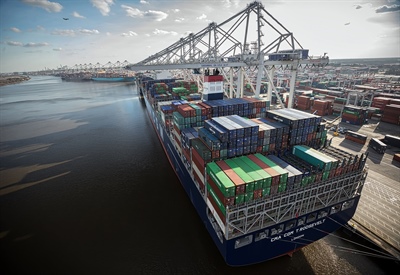
EPA to Provide Relief for Certain Marine Diesel Engines
The Environmental Protection Agency (EPA) is proposing to amend the national marine diesel engine program to provide relief to boat builders and manufacturers of lightweight and high-power marine diesel engines that are used in high-speed commercial vessels such as lobster fishing boats and pilot boats.
“This proposal will provide boat builders the flexibility they need to meet EPA standards while they continue to manufacture products that are critical to marine industries,” said EPA Administrator Andrew Wheeler. “This action reflects our mindset that environmental progress is best achieved by working with states and the regulated community to advance sound and attainable regulatory solutions.”
“This proposed rule will give boat builders and manufacturers regulatory certainty and encourage continued growth at the port,” said EPA Region 4 Administrator Mary S. Walker. “This action is a win-win for builders and bar pilots and allows goods and services to continue moving at the port.”
“This proposed rule is very important for both our bar pilots and our port in Savannah,” said Congressman Earl L. “Buddy” Carter (GA-01). “The current standards have made it impossible for the bar pilots to purchase any new vessels because there simply is not a single manufacturer that can meet the requirements. The new guidance will give the pilots the ability to purchase new vessels, so they are able to continue to do their important job while ensuring there won’t be any disruptions to the shipping traffic or other unnecessary delays at the port. I thank the EPA for working with us to correct the current flawed guidance to ensure the growth at our port and in our region isn’t negatively impacted by standards that are impossible to reach.”
EPA’s proposal will help boat builders whose production capabilities have been impacted by a lack of certified engines available with the desired size and power characteristics. The proposal will provide additional lead time to meet the agency’s Tier 4 standards for qualifying engines and vessels and includes a new waiver process, which would allow for continued installation of Tier 3 engines for certain vessels if suitable Tier 4 engines continue to be unavailable. The proposal also includes changes to streamline the engine certification process to promote certification of engines with high power density.
This rule also includes a proposed technical correction to the national marine diesel fuel program. This change will clarify that fuel manufacturers and distributors may sell distillate diesel fuel that meets the 2020 global sulfur standard adopted by the International Maritime Organization (IMO). The proposed correction will help U.S. fuel manufacturers and distributors to meet the IMO standard on time and without creating additional burdens for the industry.


Bulloch Public Safety
02/09/2026 Booking Report for Bulloch County

Bulloch Public Safety
02/16/2026 Booking Report for Bulloch County

Bulloch Public Safety
02/20/2026 Booking Report for Bulloch County

Bulloch Public Safety
02/17/2026 Booking Report for Bulloch County

Bulloch Public Safety
03/02/2026 Booking Report for Bulloch County








